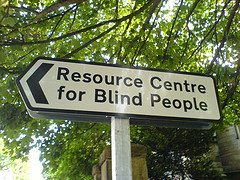The Other Guide
 I have been asked to contemplate being the country editor for Argentina by an international travel publication. I hesitated in the beginning because, understandably, much of the information would relate to the Capital, Buenos Aires.
I have been asked to contemplate being the country editor for Argentina by an international travel publication. I hesitated in the beginning because, understandably, much of the information would relate to the Capital, Buenos Aires.I am reluctant to participate in peddling the myth that Buenos Aires is the Paris of the South or the latest gastronomic epicentre for gourmet travellers since neither of these wild claims is true. After spending a day in Palermo Viejo this week where streets are now lined with boutiques vying for tourist dollars, I am not even sure if it could be accurately described as having a bohemian vibe anymore.
Buenos Aires is still captivating, especially if one is not living here earning pesos or counting on an Argentine state pension. For travellers expecting the whole South American experience, the city's European heritage lacquered with a veneer of sophistication in certain barrios (districts) is undoubtedly a pleasant surprise.
It is supposedly one of the most educated cities in Latin America; however, working from a low common denominator within the continent plus a visible polarisation of wealth among its citizens, the claim is no more than a misleading stereotype. Further, civility which is assumed to come hand in hand with education elsewhere is shockingly lacking among the educated in this city.
In many respects this is a city where her habitants have little sense of their rights and obligations in society. Rights are easily traded for a small bribe and obligations are painlessly dodged because of the bureaucratic and ineffectual government. Often, there is no moral judgement and little penalty for the offenders so it is lamentably, a downward spiral without a landing pad.
In spite of the dilapidated state in many parts, compounded by air pollution from motor vehicles long passed their retirement and waste pollution by the habitants who litter without any hint of guilt, the porteños are proud of their city of Good Airs and their country.
As a matter of fact, I am still hoping for clues to understand the disconnection between this pride and the negligence porteños show towards the place they so dearly love. It seems proclaiming one's love and actually loving and caring for it have no correlation in their minds.
So this publication is an interesting proposition if only because it is not a traditional travel guide. The concept of this guide could be compared to a traveller's First Aid kit. What if one loses one's passport? What if one had just been robbed? What if one gets into legal trouble? It is an informational standby for the diligently prepared travellers and a factual saviour with directions and answers for the unfortunate few.
In a city where even my porteño friends paused to consider if calling the police to stop noise pollution from inconsiderate neighbours in the wee hours would involve a fee; where a tearful expat lady, waiting at her Consulate's for assistance, told of being threatened and lied to by the Blues; and where I have personally witnessed uniformed men coming into a quiet bakery cafe in my neighbourhood to ask for bags of free goods, I think the uninitiated definitely need to be warned. It may not happen; but anyone already in a distressed enough situation to call the police should be fully prepared to avoid nasty surprises and further upsets.
Buenos Aires is a city and Argentina a country with so much potential and opportunities but no considered execution plan to realise them to their fullest. Debates between politicians who are more preoccupied in serving their own agendas are never on long term plans and policies but similar to fishwives having a verbal catfight.
Indeed, parallels can be drawn between the country run by these politicians and the Argentine kids, even from middle to high income families, suffering poor nutrition in the hands of their loving, yet uninformed parents (see earlier post, Garbage In Garbage Out).
I am still on a warpath to get my Argentine relatives to eat more nutritional food, so I going to share this recipe with you: zucchini is a very easy vegetable to like, especially when sautéed with onion and pancetta. Of course, if you can manage to sneak in more vegetables such as grated carrots, sliced capsicum or leek, go for it! It is also a great addition to any kid's lunchbox.
Zucchini slice:
375g grated Zucchini
I am still on a warpath to get my Argentine relatives to eat more nutritional food, so I going to share this recipe with you: zucchini is a very easy vegetable to like, especially when sautéed with onion and pancetta. Of course, if you can manage to sneak in more vegetables such as grated carrots, sliced capsicum or leek, go for it! It is also a great addition to any kid's lunchbox.
Zucchini slice:
375g grated Zucchini
1 onion, finely chopped
75g pancetta, chopped
1 cup self raising flour
1 cup grated cheese
5 beaten eggs
1/4 cup oilpepper and salt
Mix all ingredients together in a bowl. Place in shallow greased baking dish and spread mix evenly. Bake at 200C for 30 to 40 mins or until browned.
If desired, parmesan cheese can be sprinkled on top before baking. Serve with salad if no one protests; he, he ;-)


<< Home